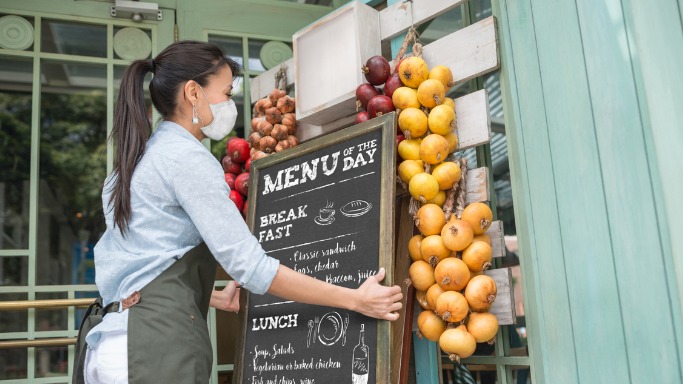Maryland is a top state for women-owned and minority-owned businesses. Yet, the brutal pandemic has left many of them struggling to survive. Now, more than ever, we need small businesses to operate rather than dooming them to permanent closures by imposing harsh and arbitrary restrictions.
Thankfully, Gov. Larry Hogan offered fragile small businesses critical relief including forgiving $75 million of emergency loans. His support for small businesses will help these firms, especially those run by women who are more vulnerable, stay afloat even as we enter what could be the final stages of this pandemic. It comes not a moment too soon.
The situation for small businesses nationwide is dire. According to new a survey from the National Restaurant Association, as of Dec. 1, over 110,000 dining and drinking establishments are either temporarily or permanently closed. These were fixtures in their communities operating for over a decade on average and employing dozens of workers. In the restaurant industry, women are well represented comprising more than half of all owners.
Female-owned businesses in all industries were hard hit by COVID-19. According to a research study published by the National Bureau of Economic Research, the number of female-owned businesses suffered a disproportionate drop of 25 percent (that’s a loss of 1 million businesses) between February to April, higher than the 20-percent loss of male-owned firms.
Government-mandated business closures in response to COVID-19 have left female entrepreneurs with shattered dreams and women of all ages without paychecks or flexible work. This is a reversal in the progress women’s firms enjoyed before the pandemic.
In 2019, the U.S. was home to 12.9 million women-owned businesses (42 percent of all businesses) that generated $1.9 trillion in revenue and employed 9.4 million workers, according to American Express’s 2019 State of the Women-Owned Business Report. Between 2014 and 2019, the number of women-owned businesses grew three times faster (21 percent) than all businesses (9 percent).
Pandemic shutdowns of non-essential businesses and severe restrictions on in-door activities hit many women’s firms squarely. Half of women-owned businesses are concentrated in three industries: personal care and other services, healthcare and social assistance, and professional and technical services. The accommodations and food services industry ranks second for employment among women’s firms.
While remote work allowed women in professional services, such as bookkeepers and lawyers, to continue to provide their clients with uninterrupted services, others who have to interact with the public did not fare as well. Foot traffic at hair and nail salons plummeted for those allowed to operate. Businesses that service offices and commercial buildings such as dry cleaners, convenience stores, and daytime cafes lost their customer bases to telework.
In Maryland, counties such as Prince George’s County are ending indoor dining and reducing outdoor dining. Restaurant owners are rightly concerned that limitations on even outdoor dining are not grounded in science. As Hogan explained, outdoor dining is “not the No. 1 source of transmission… All of our contact tracing data shows the No. 1 source of transmission is family gatherings.”
Other states are ending outdoor dining entirely, which will likely be the death knell for many remaining establishments. Over half of women small business owners surveyed by Groupon this fall fear they will have to close permanently.
Maryland policymakers should deem all businesses essential to operate. They can still require social distancing and other safety measures, but allow customers to shop, patron, or dine at the businesses of their choice and at their own risk. This would level the playing field between small businesses and bigger ones.
Small business aid from the state and Congress are also important, but they are an IV drip not, a cure. Allowing businesses to operate is necessary for female and minority businesses to survive until enough of the public is vaccinated to resume their normal consumer activities. Our local lawmakers must not ignore the hardship of hardworking women and men across the state.

